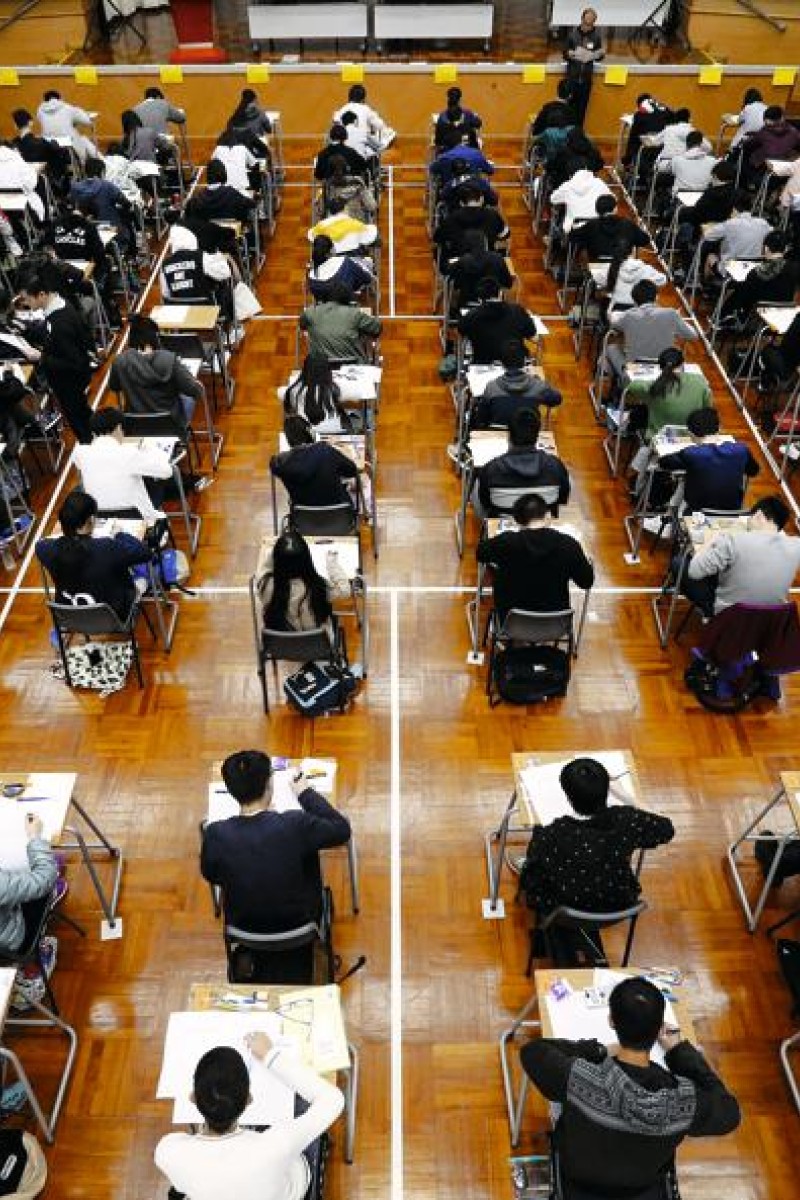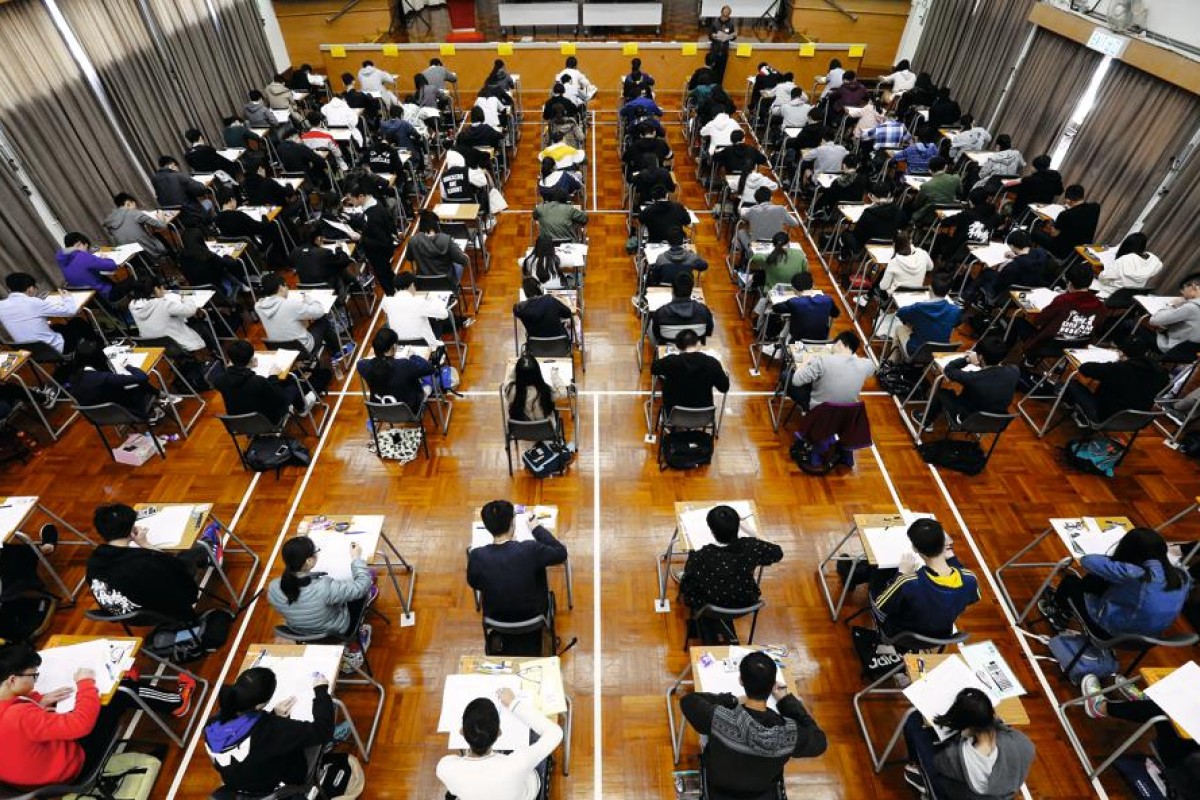
2017 HKDSE results reveal six top scorers including one super top scorer - but lower overall pass rate than last year
This year's Diploma for Secondary Education exam results see an increase on last year's number of top scorers from four to six, but a drop in overall passes
 Students sat the Hong Kong Diploma of Secondary Education (HKDSE) exam between March and May.
Students sat the Hong Kong Diploma of Secondary Education (HKDSE) exam between March and May.A total of six students achieved perfect scores in the Diploma for Secondary Education (DSE) examination this year, with one of them labelled as the “super top scorer.” However, the number of secondary school graduates scoring at least 2 – the passing score – from five subjects has slightly decreased compared to last year’s, as well as the number of those who met university entrance threshold.
A total of 61,600 schools and private candidates sat the exam from March to May – about 9.5 per cent fewer than the total number last year. This is due to the continuous drop in secondary school students, which is attributed to the city’s low birth rate.
Three females and three male students obtained the highest score of 5** in the four core subjects and three electives. One female amongst these students was deemed “super top scorer” as she got a perfect score in the maths extended section, securing a total of eight 5**.
There were four top scorers from three schools last year, while there were 11 in 2015, 12 in 2014, nine in 2013 and five in 2012.
Dr Tong Chong-sze, secretary general of the Examinations and Assessment Authority (HKEAA), said in a press conference in Wan Chai today that some 900 candidates failed to show their identity cards or admission forms when sitting their exams, which could be cause for disqualification in future.
“We allowed these students to sit the exams this time, but we have been thinking about making the rules stricter next year...we won’t allow students to do the exams or may penalise them if they don’t have any identification documents,” he said.
Some students encountered technical problems during the Chinese language listening exam, causing a delay in starting time. HKEAA general manager Margaret Hui said the authority didn’t increase scores in this portion because the technical issues had no effect on their performance.
A total of 20,885 school candidates – 40.9 per cent – obtained at least the minimum score required by the eight government-funded universities, scoring at least 3 in Chinese language and English language, and at least 2 in maths and liberal studies, which is 1.3 per cent lower than last year.
They will compete for saround 15,000 government-subsidised undergraduate places, meaning about 28 per cent of the qualified candidates could lose out. However, they can consider studying non-Jupas self-financed bachelor’s degree programmes under the new HK$30,000 subsidy scheme.
A total of 34,660 school candidates – 69.7 per cent – scored at least 2 in each core subject and one elective subject, a drop of 1.5 per cent from last year, meeting the basic requirements for associate degree programmes and civil service positions.
In one serious case of cheating this year, a candidate was found with some notes in their mobile phone. The candidate was disqualified in the subject.
One school candidate was found to have plagiarised the liberal studies Independent Enquiry Study (IES) report. This student got a zero in the portion of the school-based assessment, and the total score of this subject was downgraded.
The oldest candidate is a 68-year-old who took two subject exams. The youngest candidates, all aged 14, took five to six subjects. The authority declined to reveal their scores.
